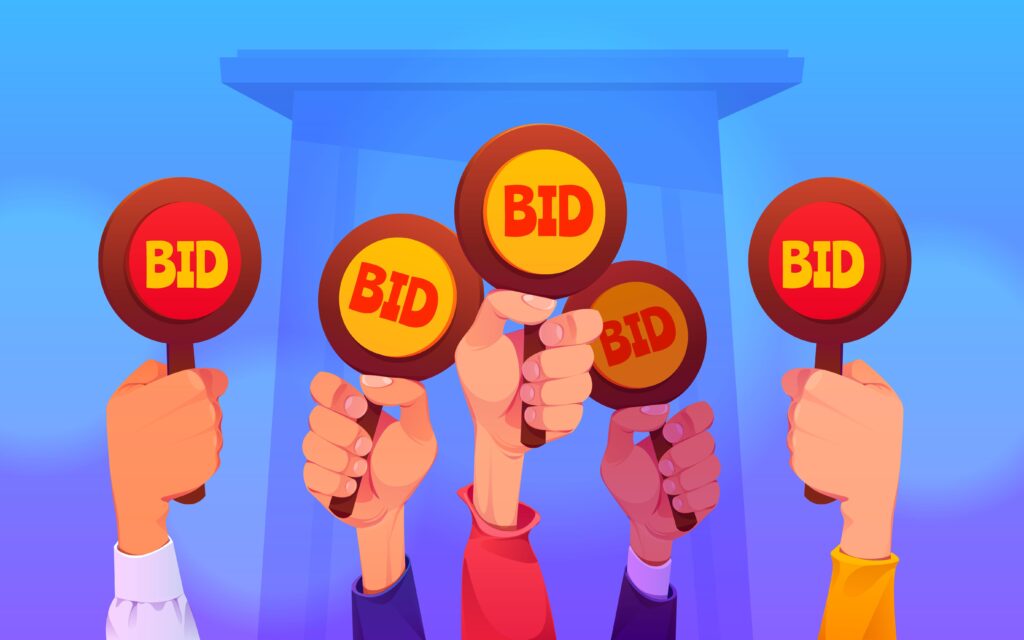The First Step Is Registering With SAM

To do any business with the federal government, you must register your business in the System for Award Management directory. The government will not hire any type of business (large or small) that has not registered in SAM directory.
Please read one of the helpful blog articles on our site like Everything You Need to Know About SAM for Small Businesses. These blogs will help give you all the information you need to understand how we can help make the process very easy for you. Sam Directory will happily guide you through this often confusing process.
What do I need to register for the Sam Directory?
You will need the following :
- A Data Universal Numbering System or DUNS from Dun and Bradstreet
- Your Tax Identification Number or TIN
- A Social Security Number if you are a Sole Proprietor.
CAGE Code (Commercial and Government Entity)
This code is five characters and unique to your business. It’s basically your ID code, and government agencies will identify your business using this code. It is a bit like a social security number for your business. If your business includes more than one facility, then you will need multiple CAGE codes. Each location must have its own unique code, and each location must be registered separately with SAM.
Where Do You Find Government Contracts For Bidding
Search for opportunities at the following SAM.gov. Federal agencies are required to publish all contracts that are above $25,000 on SAM.gov. This means that there are a large number of contracts advertises there at any given time.
Contact a procurement officer for information on contracts that are below the $25,000 threshold for publishing.
Look To Your Local PTAC Office
Procurement Technical Assistance Centers or PTACs provide free assistance in government contracting. They will help you identify bidding opportunities and if your company meets certain criteria to work with the government. Here is also where you can find out if your business can be certified as 8(a), WOSB. or HUBZone.
The Bid

The Federal government has the following type fo solicitations for bidding:
- Request for Quotation (RFQ). This type is for contracts below $150,000 with a simplified acquisition procedure.
- Request for Proposal (RFP). This type of solicitation asks vendors to make a proposal in response to the government request. You can (and often will) discuss delivery details, technical requirements, and specifications with the contracting officer when you bid on that type of solicitation.
- Invitation for Bid (IFB). The “lowest bid wins” or “sealed bid” type of solicitation. No discussion or price negotiation is implied here.
- Request for Information (RFI). This is mostly to research the market and evaluate the interest and capabilities of contractors in a specific niche.
Make sure you read the solicitation requirements carefully. A solicitation package will include, documents, technical conditions, attachments, and various other things required with the submission. For most federal government contracts under RFP and IFB solicitations, there are standard contracting forms you should fill. As for required documents, they are listed in the solicitation
Contact your contracting officer if you have questions. It is important that you understand every single thing about the solicitation that you are bidding on. Also, look to FARs (Federal Acquisitions Regulations) that govern the solicitation you are to respond to make sure you know the regulations and requirements.
Small Business Administration Certifications

A Small Business Administration certification is a great way for your business to stand out in the marketplace. Certifications can help you gain access to specialized funding and scholarships, allow you to compete for set-aside contracts, and can be a great bonus to potential clients. Here are some certifications to consider for your small business:
- Women-Owned Small Business Federal Contract Program (WOSBs)
- 8(a) Business Development Program
- The Service-Disabled Veteran-Owned Small Business Concern Procurement Program(SDVOSB)
- Historically Underutilized Business Zone Program (HUBZone)
Networking

Sometimes the hardest step is getting your foot in the door. Networking is extremely important when trying to secure government contracts. The Small Business Administration (SBA) is a great resource and hosts many events throughout the year. These events are usually no cost to business owners and can offer a treasure trove of information about how to obtain contracts from various agencies.
This is your opportunity to shine so make sure you are prepared to present an elevator pitch to better define your company. This is a speech that explains what your business has to offer and how you can help another organization meet their goals. It should be short and simple, no longer than a 30-second elevator ride.
Do Your Research
Once you have selected some agencies that are in need of your goods and services, it is very important to research your customers. Luckily, nowadays you can find out a lot about an organization online.
At the end of the day, the United States government is a customer just like any other. However, this customer has deep pockets and unlimited needs. A small business can cater to the government by following a strategy in which the customer’s needs always come first. Identify what the government agency’s pain points are and then offer them your innovative solutions to their problems. This type of discipline always wins big points with the government. Here are a couple of examples of how you can find the information you need in order to win lucrative government contracts:
- Inquire about the vendor Outreach Sessions and when will they be held
- Inquire how your company’s products/services could help with the agency’s missions
- Request meetings with Agency Program managers leading the contract requirements you’re pursuing
If you would like to do additional research, you can also check www.fbo.gov, an online listing of government contracts that detail all contracts with a value exceeding $25,000. Another available resource is www.usaspending.gov, a site that details how government money is spent, what agency is issuing awards, and who the federal government is buying from.